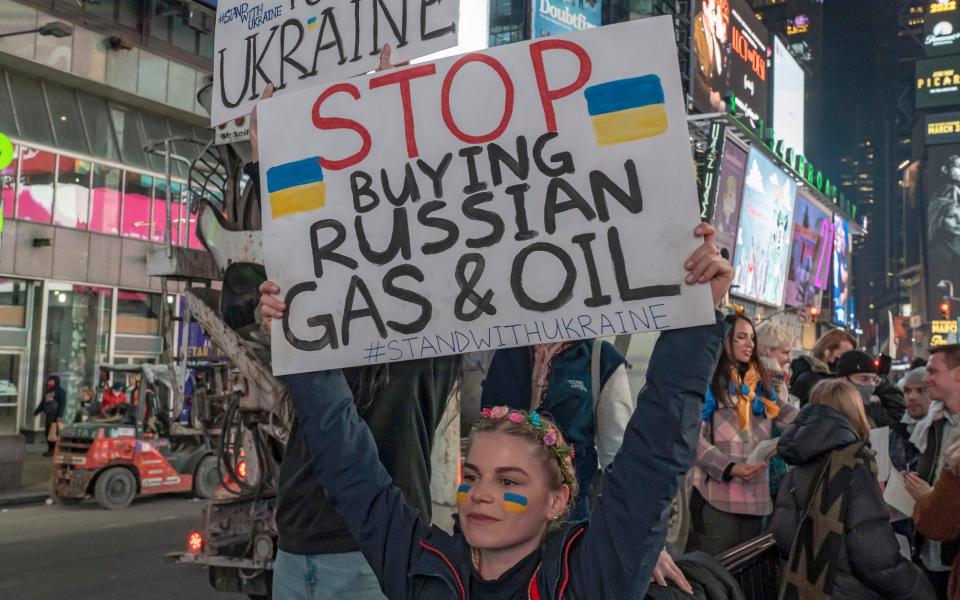Britain to become gas 'bridge' to Europe

Britain is set to be a “transit” country for natural gas supplies to Europe this summer as the continent scrambles to ditch its dependency on Russian reserves.
National Grid has predicted a surge in gas exports from Britain to Europe during the six months to September as the Continent starts to refill storage sites ahead of next winter while using less gas from the Kremlin.
Gas is piped into Britain from the North Sea, Norway and from ships sent from all over the world in the form of liquefied natural gas (LNG), which can then be sent on to Europe via pipelines to Belgium and Holland.
Europe currently gets about 40pc of its gas via pipes from Russia, a reliance that has hobbled its response to the Ukraine war and risks tipping the bloc into recession.
It wants to cut its reliance on Russian gas by two-thirds in 2022, a huge task amid global shortages, while there is also the risk Russia could cut off exports in retaliation over sanctions.
In its annual summer gas outlook published on Thursday, National Grid said: “There is a high uncertainty around Russian gas supplies going into the summer and Europe may have to rely on LNG, including via the GB [British] market and interconnector flows, to refill its storage stocks.
“We could see the UK terminals and the national transmission system being used as a transit for gas going into Europe via the interconnectors.
“The growing concern around security of gas supplies into Europe [...] means that higher volumes of gas from alternative sources may be required to refill EU storage in preparation for winter.”
National Grid, which owns Britain’s main gas pipelines and balances gas supplies, believes exports to Europe are set to reach 5.1bn cubic metres (bcm) this summer.
This is in line with the five-year summer average to 2021 but is far higher than the 0.7bcm exported last summer when cold weather and few LNG shipments to Britain meant there was little extra to sell on.
It is expected the rise in exports this summer will happen as a result of normal commercial arrangements based on prices in Europe, as opposed to any request from European or UK officials, and with UK demand being met.
Paul Sullivan, head of future gas markets at National Grid, said: “The commercial chain is as normal. Shippers will buy it into [the UK] and then trade it through commercial arrangements and it will flow out over interconnectors.”
The Government said in its new energy security strategy published last week that the UK provides a “key EU entry point for non-Russian supplies of gas”.
Ministers are “working closely with the US on gas, particularly on how we can leverage UK LNG infrastructure to support European supply,” it added.
They are also “examining our infrastructure to ensure gas flows efficiently between the UK, Europe and the global market.”
The US has pledged to try and send an extra 15bcm of gas to the EU this year to help wean it off Russian supplies.
Britain has three terminals where LNG can be converted back into gaseous form, in Wales and Kent.
This means large volumes of gas can be imported into Britain from the US or elsewhere before being piped out to Europe.
About 10-12pc of LNG supplies to the UK have, however, come from Russia in recent years, accounting for about 3pc of the UK’s total gas supply.
The Government wants to cut this down and has banned Russian ships from UK ports, although some Russian gas can still get through as cargo on non-Russian ships.
Germany, which is one of the European countries most reliant on Russian gas, does not have any terminals to convert LNG back into gaseous form.

 Yahoo Finance
Yahoo Finance 